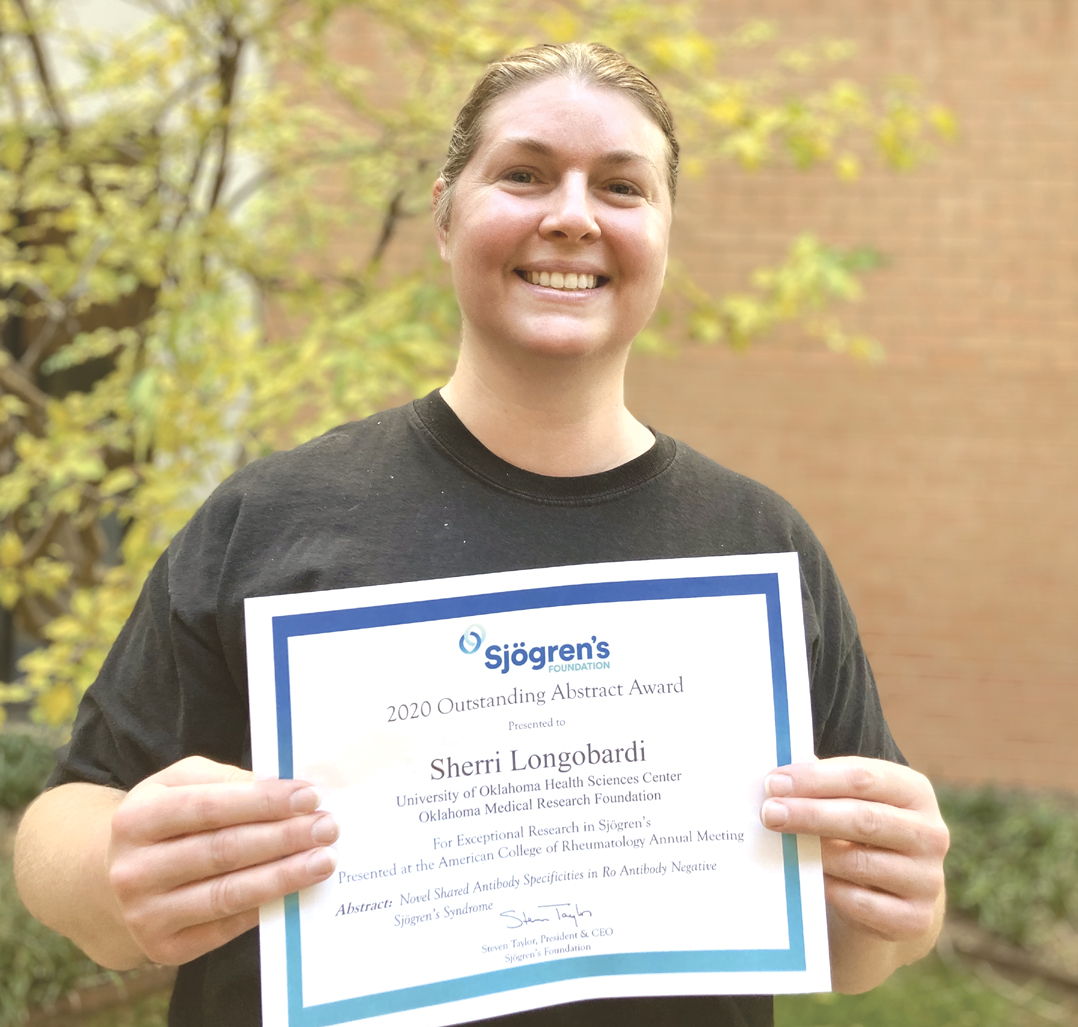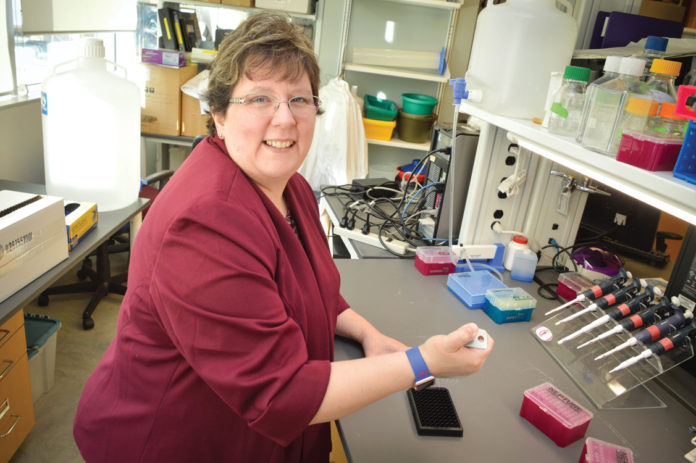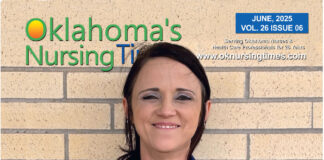
Three Oklahoma Medical Research Foundation scientists were recently recognized for excellence at the American College of Rheumatology meeting, the world’s largest annual conference for the field.
OMRF senior research assistant Sherri Longobardi received the Sjögren’s Foundation’s Outstanding Abstract Award for her work in identifying new methods for diagnosing Sjögren’s syndrome, where immune cells attack moisture-producing glands, causing symptoms that include severe dry eyes and dry mouth, fatigue, joint pain and rashes. There are currently no approved treatments for the illness.
Current blood tests to diagnose Sjögren’s look for biomarkers found in just 60% of patients, making the disease challenging to detect, and a lip biopsy is often required to confirm a diagnosis. Since beginning her research in 2016, Longobardi has identified eight new markers, paving the way for a blood test with accuracy rates as high as 93%.
Darise Farris, Ph.D., who mentors Longobardi at OMRF and holds a $2.7 million Sjögren’s grant from the National Institutes of Health, noted the work is a major step forward in the field. “This a significant discovery that could better diagnose patients and save a large portion from a painful lip biopsy and extensive testing.”
OMRF scientists Eliza Chakravarty, M.D., and Melissa Munroe, M.D., Ph.D., were also recognized for outstanding abstracts at the meeting. Their separate projects focused on better understanding aspects of the autoimmune disease lupus.
Chakravarty helped lead a multi-site NIH trial to determine whether patients can safely stop taking a lupus medication — mycophenolate mofetil — associated with numerous side effects. The study determined that patients with stable disease may be able to stop the medication without added risk of disease flare.
Munroe’s project examined specific inflammatory and regulatory imbalances in the blood that may help clinicians better predict and identify which relatives of lupus patients will go on to develop the condition.
“The American College of Rheumatology meeting is a gathering of the brightest minds in the field,” said OMRF Vice President of Clinical Affairs Judith James, M.D., Ph.D. “The recognition of these investigators and their teams is yet another nod to OMRF’s critical work in understanding and treating autoimmune diseases.”













